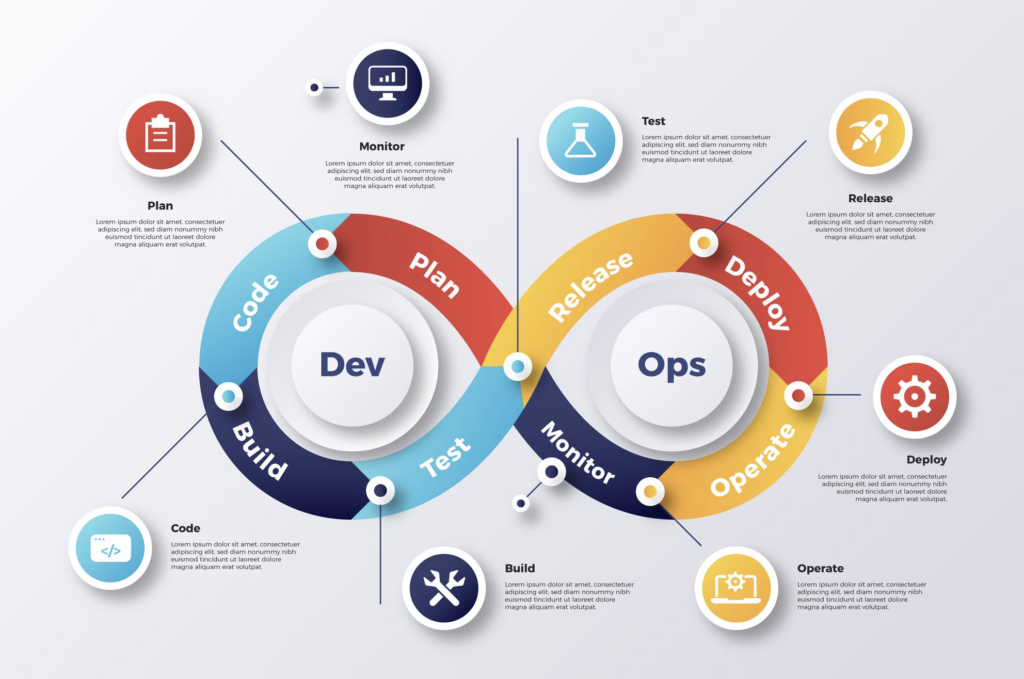
DevOps has become a critical component in the software development lifecycle (SDLC) by bridging the gap between development and operations teams. Traditionally, these two groups operated in silos, which led to inefficiencies, delayed releases, and increased risk of failure. DevOps fosters collaboration and integration, enabling both teams to work together throughout the lifecycle. By automating manual processes, continuous integration (CI) and continuous delivery (CD) pipelines allow for faster and more frequent updates, which is essential for maintaining competitive advantage in today’s fast-paced software development landscape. This shift not only accelerates product development but also helps to ensure higher quality, as bugs are identified and addressed earlier in the process.
The impact of DevOps on the tech industry has been transformative, particularly in areas such as efficiency and consistency. Automation tools, like Jenkins, Docker, and Kubernetes, help streamline repetitive tasks and reduce human error, significantly improving efficiency. Deployment cycles that once took days or weeks can now be completed in a matter of hours or even minutes, allowing businesses to respond quickly to customer demands or market changes. Furthermore, by standardizing processes across teams and automating testing and deployment, DevOps ensures consistency across environments, whether in development, staging, or production. This reduces the risk of “works on my machine” issues and ensures that software behaves as expected regardless of the environment in which it runs.
DevOps is also intricately tied to cloud migration initiatives. As organizations shift their workloads to the cloud, they face new challenges in scaling, managing infrastructure, and ensuring reliable, rapid delivery of software. DevOps practices enable companies to leverage cloud-native technologies such as containerization, microservices, and serverless computing, which enhance flexibility and scalability. By automating deployment and infrastructure provisioning through tools like Terraform and Kubernetes, DevOps ensures that cloud environments are optimized for performance and cost efficiency. Moreover, the agility and speed provided by DevOps practices are essential for managing the dynamic nature of cloud-based infrastructures, where environments and resources can change rapidly.
Regardless of an organization’s size, having a dedicated DevOps team is crucial. While smaller organizations may not have the same scale or complexity as larger enterprises, they still need to maintain agility, quality, and operational efficiency. A DevOps team helps streamline the development process, enabling smaller teams to do more with less and avoid bottlenecks that can delay time-to-market. For larger organizations, a DevOps team ensures that processes are standardized across multiple teams and environments, reducing inconsistencies and improving overall collaboration. Whether it’s a startup or a multinational corporation, DevOps provides a structured framework that helps organizations deliver better software faster, with reduced risk and more predictable outcomes.

Technologist, Cloud Promoter, Automation and Continuous Optimization Advocate.